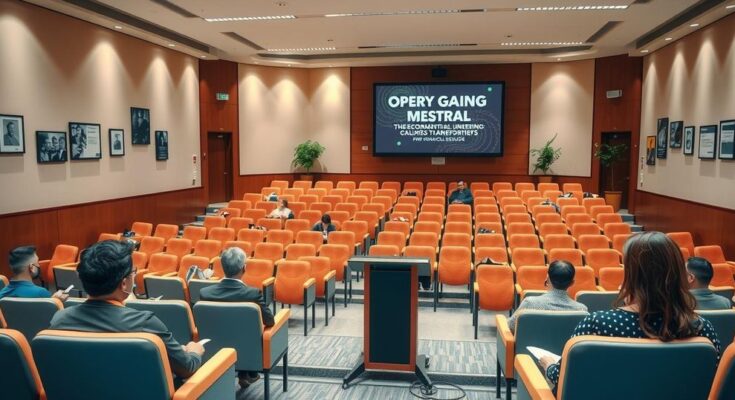At the University of Michigan, a panel of experts gathered to explore U.S. foreign policy on human rights during the Trump administration. As part of the LSA Donia Human Rights Center speaker series, the discussion highlighted significant departures from traditional practices, like the rejection of soft power and the withdrawal from the World Health Organization, spearheaded by the previous administration.
Leading the conversation, Stephen Biegun, former U.S. deputy secretary of state, defended the limited role of government in rectifying human rights abuses. He stated, “The United States will always be in this struggle to balance our interests as a nation and our values as a nation.” He emphasized the importance of recognising the limitations of American power in addressing these global issues.
In response, Karima Bennoune, a law professor, expressed concern about the current administration’s stance on human rights, suggesting, “the priority of the United States State Department will be the United States,” which she believes may detrimentally affect global human rights and U.S. interests.
Susan Page, director of the Weiser Diplomacy Center, reminded attendees that human rights challenges are not new. “Today’s human rights and fundamental freedoms challenges are not new,” she noted, referring to historical instances where leaders have neglected human rights norms.
Amidst differing views, Public Policy student Ian Kennedy found value in the diverse perspectives presented during the discussion. He remarked, “I think the event had a pretty diverse spectrum, from left, right, liberal, conservative … all talking about the same topic.”
The panelists uniformly urged the Michigan community to actively engage in political dialogue. Page suggested practical steps like writing to elected officials, reinforcing the importance of civic engagement. “But some of the things that you can do are… Write to your congressman, call your congresswoman!”
Finally, Ratner encouraged students to spark discussions around foreign policy with peers, illustrating that even informal conversations can propagate awareness. “I think you can talk about these (issues) in your dorm rooms,” he said, inviting students to share insights and perspectives around U.S. foreign policy.
The University of Michigan hosted a panel discussion addressing U.S. foreign policy on human rights during the Trump administration. Experts shared varying views, stressing the limited role of government in addressing human rights issues, the historic context of challenges faced, and the need for community engagement in political discourse. They encouraged students to engage in discussions about foreign policy in their everyday settings to promote awareness and understanding.
This enlightening panel discussion at the University of Michigan delved into the complexities of U.S. foreign policy concerning human rights during the Trump era. With experts presenting varied viewpoints, a common theme emerged: the significance of civic engagement and the importance of individual discussions in promoting awareness. As the conversation unfolded, it became clear that the landscape of human rights and foreign policy merits ongoing dialogue and action within the community.
Original Source: www.michigandaily.com



